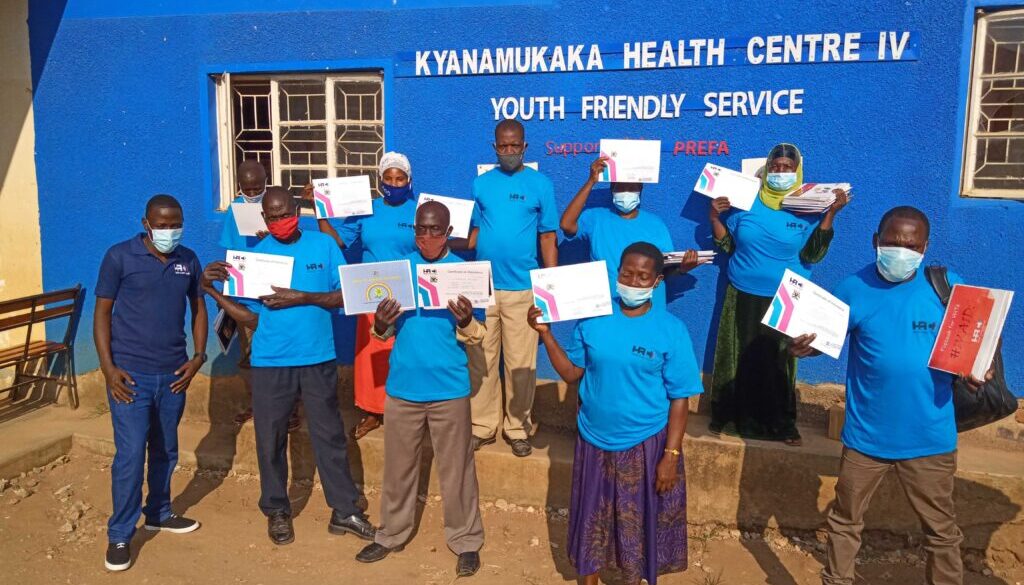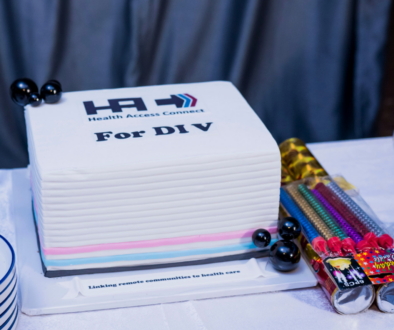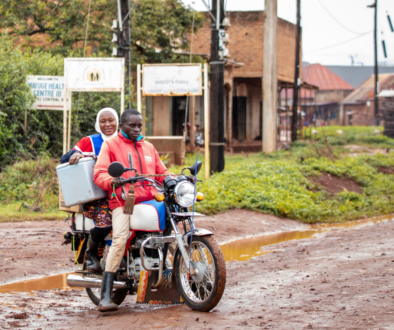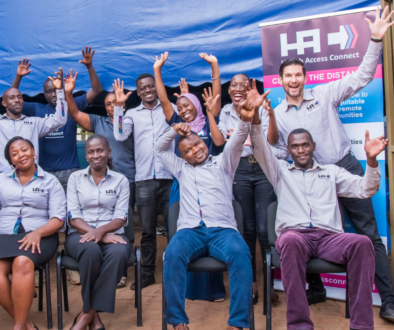We Love Frontline Health Workers
We had an opportunity to meet one of our frontline health workers, Kirabo Karen Rwabanda of Rakai district. Curiously, we asked her why she loves being a community health worker, and this was her passionate reply, “Seeing that people get easy and near access to medical care. Seeing that people get true medical care and they don’t just sit home without knowing where to get medical attention. Seeing that children who reach the age of immunization get immunized with the right vaccine. Seeing that all expectant mothers get immunized.”
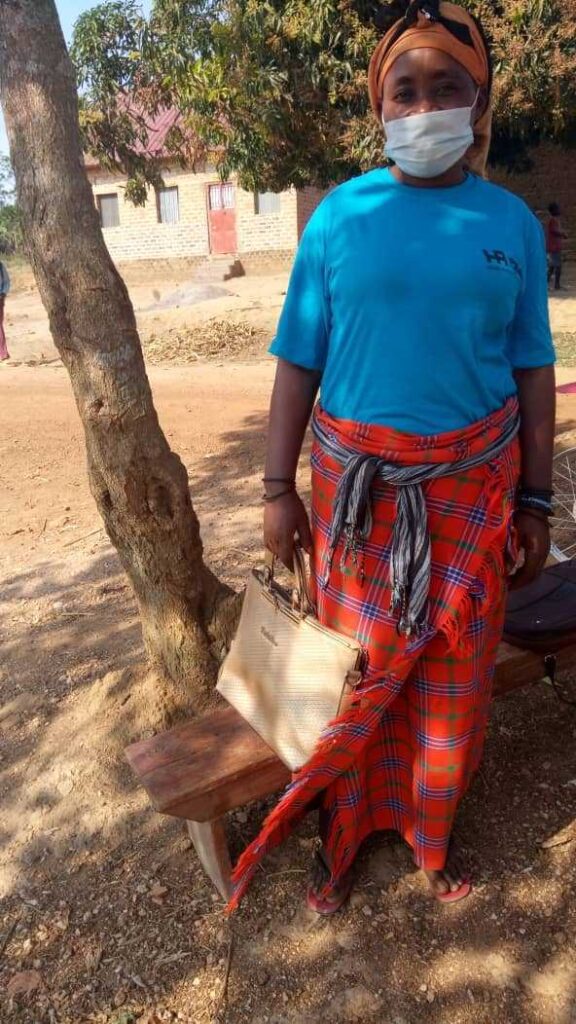
The situation before HAC
Before Health Access Connect (HAC) started bringing health services to her community, Lwabanda village, the health worker vividly recalls how discouraging it was to do her job. “I lost guts because I could sensitize people on the benefits of immunization and then encourage them to take their children for immunization. But, for people to actually walk to the health centres was impossible because of the long distance,” she explained. The members of the community could approach her and truthfully explain how they would love to access these health services but the long distance to the hospitals limited them. “Sometimes, even husbands did not want their wives to travel the long journey to the hospital. They had an assumption that their wives could use travelling to the hospital as an excuse to engage in their own plans,” Karen further explained. She narrated to us stories of expectant mothers in labour who would end up dying along the road when going to the hospital to give birth. “Before HAC came into this community, we had a pregnant mother in labour who passed away while on her way to the hospital, they hadn’t checked her, she didn’t give birth, she just died!”
As Health Access Connect, we believe that healthcare is a basic need that everyone should be entitled to and therefore nobody deserves to struggle in accessing it. “Remote areas are marginalised and experience a lot of health challenges. However, they have a potential of contributing to the improvement of their health standards through a community participatory strategy,” Ann Kugonza, one of our field officers in Kalangala commented.
HAC’s impact in Lwabanda village
Once HAC expanded its work to Lwabanda village, it introduced a transformational medicycles model which is designed to operate as a self-sustaining program in remote communities. The members of the community take ownership and responsibility of their access to healthcare as HAC alongside government partners work hand in hand with them to set up one-day outreach clinics.
With this program, Karen alongside other community health workers were able to be supported more in their jobs with a deeper training in health promotion. “The training was a lot because from it, I got more knowledgeable on how to teach the people of my community so that they can know the truth about their health,” she appreciatively commented. Her job has got a lot easier since then.

“It is impossible to hear that an expectant mother has died along the journey on her way to giving birth. This is because these mothers learn alot from the antenatal classes that we give them and they get medically checked from the HAC outreach clinics. When their time to give birth approaches, they are able to work hand in hand with the doctors who come to the outreach clinics so that they can help them give birth in the public health centres,” Karen further explains, “….Even the children get immunized and every child who isn’t immunized is able to come to the HAC outreach clinics and get immunized well. We don’t have any more children who missed out on immunization.”
Karen also acknowledged the support that she got from HAC during the COVID-19 pandemic, “HAC gave us water taps and masks to protect ourselves from COVID-19. Even when we go to church, we are able to wash our hands before we enter just to ensure that COVID-19 isn’t spread amongst us.

The passionate health worker is grateful to Health Access Connect for their support in Lwabanda village and is still determined to do her job even with the COVID-19 risk. “In this situation of COVID-19, I go pick up a microphone and teach people on how they can protect themselves from COVID-19. I got lucky with masks, so I distributed them to the people.”
During this pandemic, it’s Karen alongside our other community health workers stationed in the different communities we serve that have been such a big motivation to us. The passion, determination and resilience that they’ve shown in their work is beyond! What can we say other than we love frontline health workers!
